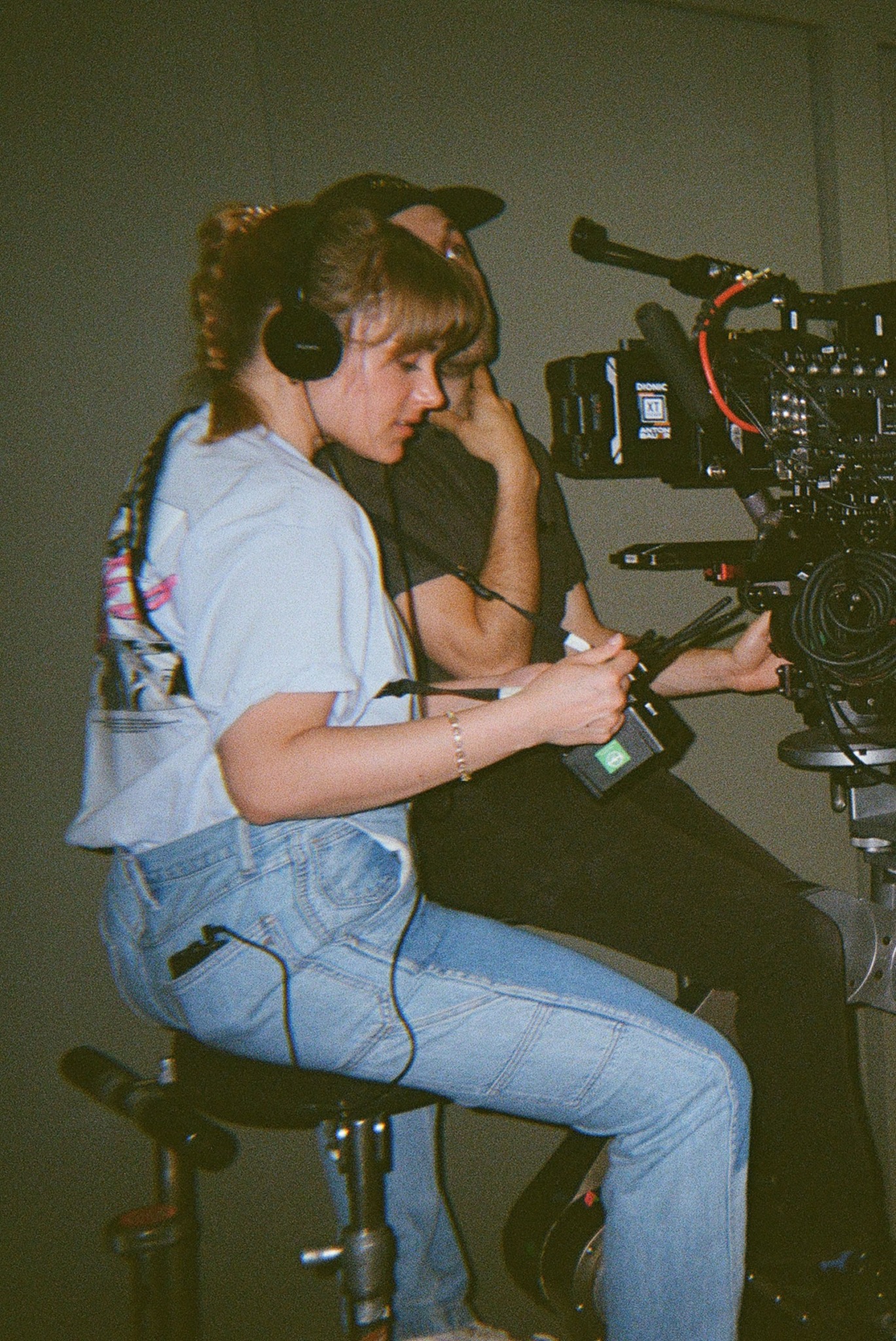We were lucky to catch up with Charlie Gillette recently and have shared our conversation below.
Charlie, thanks for joining us, excited to have you contributing your stories and insights. What were some of the most unexpected problems you’ve faced in your career and how did you resolve those issues?
One of the biggest challenges I’ve had to overcome—one that I think so many artists and creatives struggle with—is limiting beliefs and self-doubt. It was unexpected because I didn’t even realize how much I was holding myself back for so many years. Only recently, after doing some deep inner work around my creative and life goals, did I start to see it clearly.
I had a passion for making films and acting from a young age. But beneath that passion, there was this undercurrent of doubt that kept me from fully going after my dreams. I’m definitely a perfectionist and I’ve always held myself to impossibly high standards, and the fear of failing or not being “good enough” was paralyzing. I’d make a film but wouldn’t share it. I’d act in a play but wouldn’t tell anyone about it. Looking back, it doesn’t make any sense. The point of films and theatre is for people to see them so this was all just self-sabotage.
A turning point came when I was in acting school. One day, a teacher sat me down and told me, “You have stage fright.” I didn’t really believe him. I had never felt afraid while performing. I ignored that feedback for a while. But years later, I finally understood what he meant. It wasn’t the performance itself that I was afraid of—it was the fear of being truly perceived. On stage, as a character, I was fine. But being seen as myself? That was terrifying.
I think a lot of that fear stemmed from my childhood. My dad was in the military, so we moved around a lot. I was born in Berlin, moved to the U.S. when I was three, and attended seven different schools before high school. The longest I ever stayed in one place was two years. That kind of nomadic upbringing made me hyper-adaptable. I tried to blend in to each new environment and learned to keep parts of myself hidden.
Over the years, I did a lot of inner work. I went to therapy, started journaling and worked with career coaches. Through all of that work, I came to realize that the only thing stopping me from achieving my goals was myself. I definitely still struggle with those limiting beliefs sometimes, but I’m very lucky to have a wonderful community of friends and fellow artists around me who support me. I think truly successful artists are the ones who don’t hold back and let themselves be seen. That realization has shifted everything for me. My goal now is to embrace that vulnerability—to let myself be exposed in my work, to share it, even when it scares me. Because if I want people to connect with my art, I have to be willing to truly show up in it and share it with others.
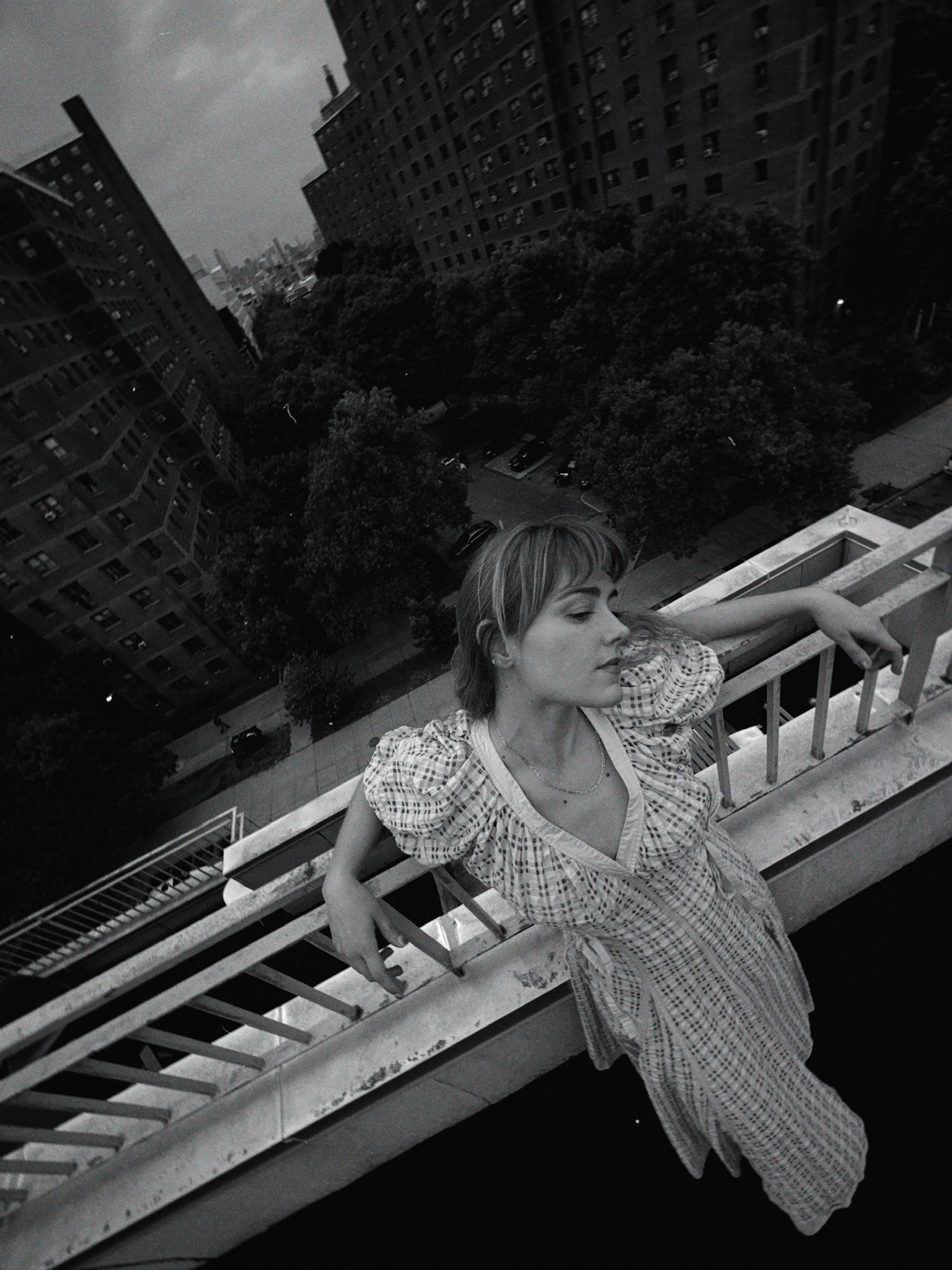
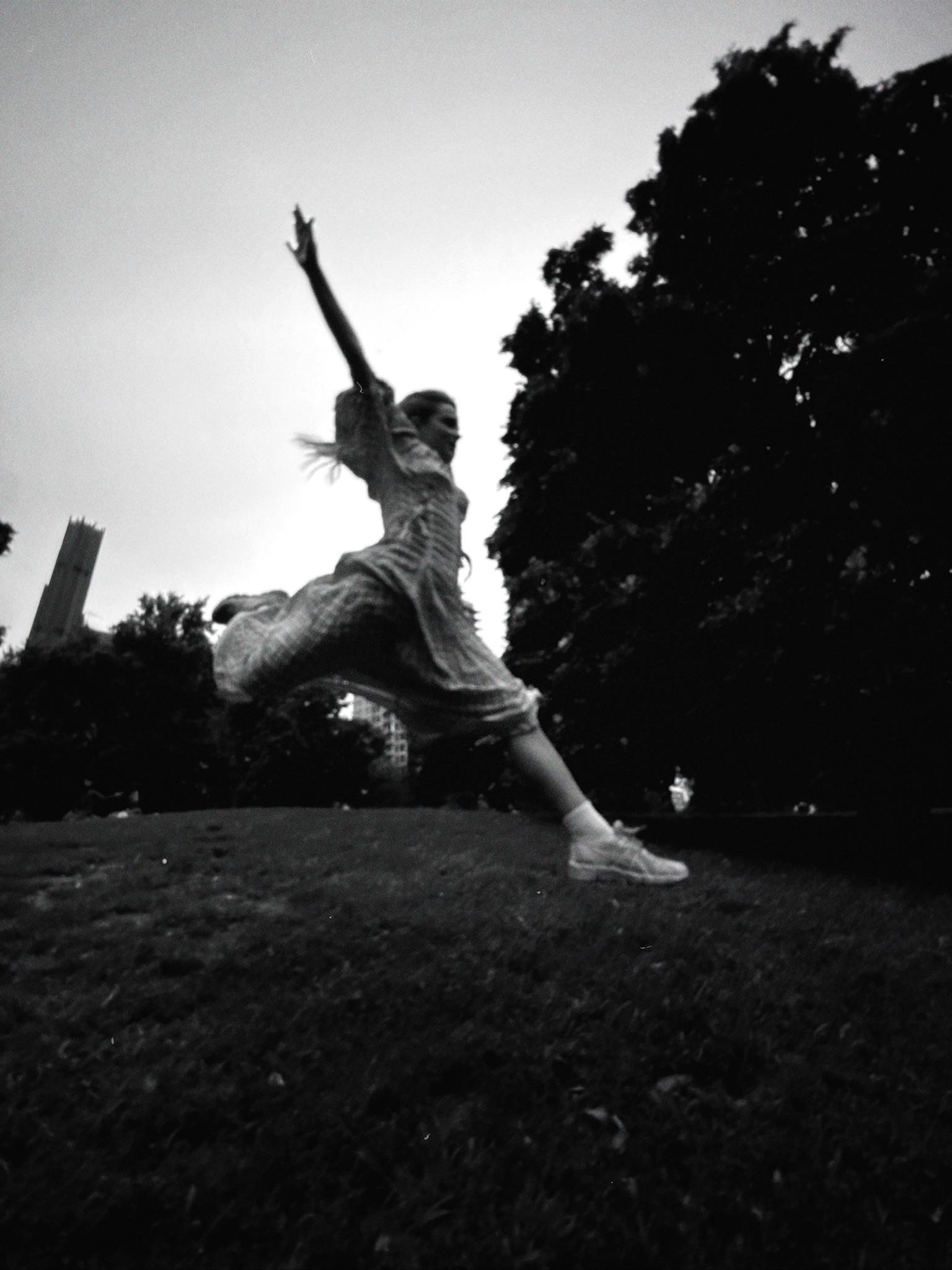
Great, appreciate you sharing that with us. Before we ask you to share more of your insights, can you take a moment to introduce yourself and how you got to where you are today to our readers.
I think my creative instinct was always there. As a kid, I would write and direct my siblings and cousins in plays and short films, staging them for the family at holiday gatherings. After seeing my first Broadway play in high school I realized I wanted to act. I auditioned for the school musical my sophomore year and I’ve been acting ever since.
But pursuing an actual career in film or acting didn’t feel like a real possibility. No one in my immediate family worked in the arts, and I didn’t have any direct access to the entertainment industry. I thought I would study English in college and maybe become a lawyer or something. (Honestly I had no idea what I wanted to for work). Everything changed when I landed a job in the writers’ room for MTV’s Skins as a teenager. That experience was a turning point. Bryan Elsley, the creator of the original British Skins, wanted the show to feel authentic, so he brought in a group of NYC teens to read scripts and give feedback to the writers. We were taught the fundamentals of screenwriting, and eventually, a few of us were selected to write short scripts that MTV then produced as webisodes. I wrote a webisode called “Dog Daze” and the script for the Tony character trailer. I got paid for my work, and somehow, that convinced my parents that studying film was a legitimate career path. (Though, for the record, I originally wanted to audition for acting school, but my parents weren’t on board with that plan.)
I ended up earning a degree in Film Studies from Barnard, then trained in acting in the UK. Like many actors, I got caught up in the grind of auditioning, but over time, I realized I’m happiest when I’m creating my own work. Especially with the unpredictability of the industry, directing and producing my own projects gives me a sense of control and freedom that actors don’t always have.
My work is influenced by my multicultural heritage (Chilean & German) and my somewhat nomadic upbringing as an army brat. I’m drawn to exploring the experience of feeling like an outsider. I’m passionate about amplifying underrepresented voices, especially those of women. My projects have been featured in The Hollywood Reporter, Teen Vogue, Elle, Bustle and screened at the Museum of the Moving Image, MoMA, and film festivals worldwide.
Recently, I launched my own creative agency, MPSH (pronounced “impish”), which focuses on commercial video work. The name actually came from a close friend who described me as “impish,” and I love the idea of an agency that embraces playfulness and mischief in the creative process. While the focus is on video projects, I want MPSH to be an open, multidisciplinary space—whether that means publishing a book, producing a fashion show, or exploring other unexpected creative ventures. The possibilities are limitless. So please reach out if you’d like to connect or collaborate.
At the core of everything I do—whether it’s narrative filmmaking, acting, or commercial directing—is a desire to tell bold, emotional, and visually striking stories. I want people to see themselves reflected in my work, to feel something real, and to walk away with a new perspective.
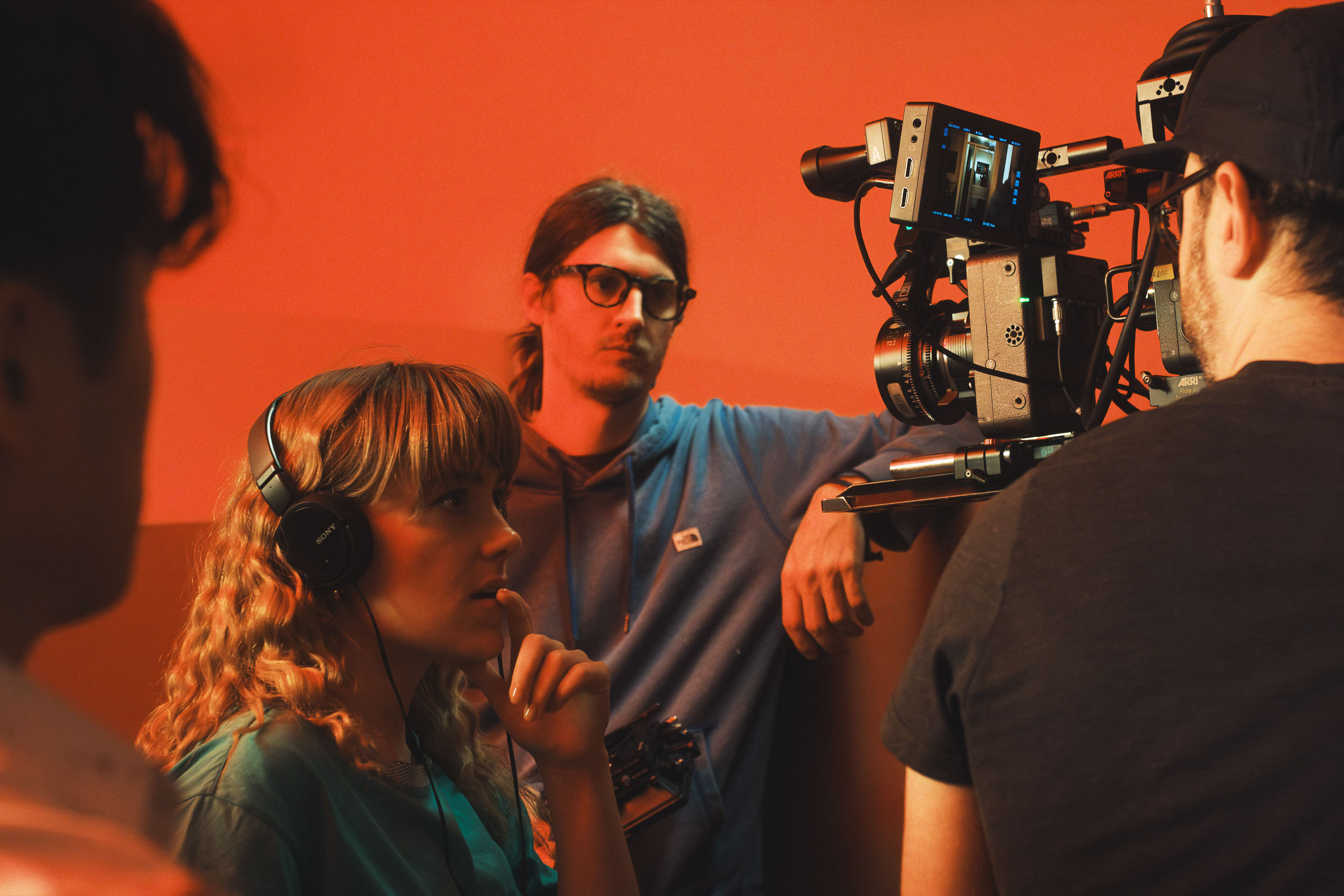
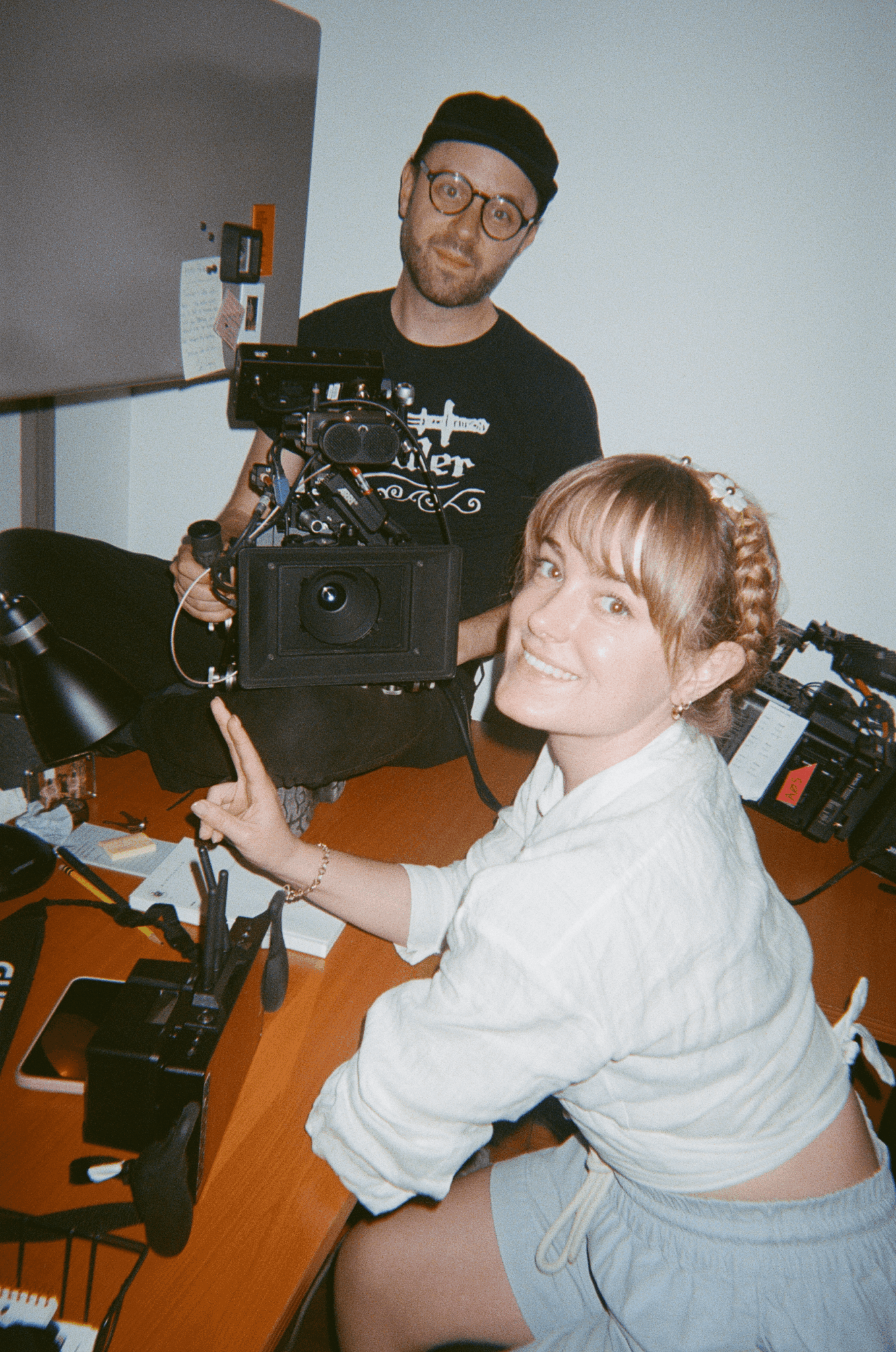
In your view, what can society to do to best support artists, creatives and a thriving creative ecosystem?
One of the biggest challenges artists face is the idea that creative work is a luxury rather than a necessity. Art shapes culture, challenges perspectives, and brings people together, but artists always have to justify why their work matters. Society needs to actively support creative industries by buying art, watching independent films, supporting local theater and reading books by emerging authors. But it’s not just about financial support. We need to foster a culture where art is seen as essential.
Schools should invest in strong arts programs as core parts of the curriculum. Public funding for music, theater, film, and visual arts programs should be protected and expanded, especially in underserved communities.
A world without art isn’t a world we would want to live in. If society truly values artists, it has to show that through action.
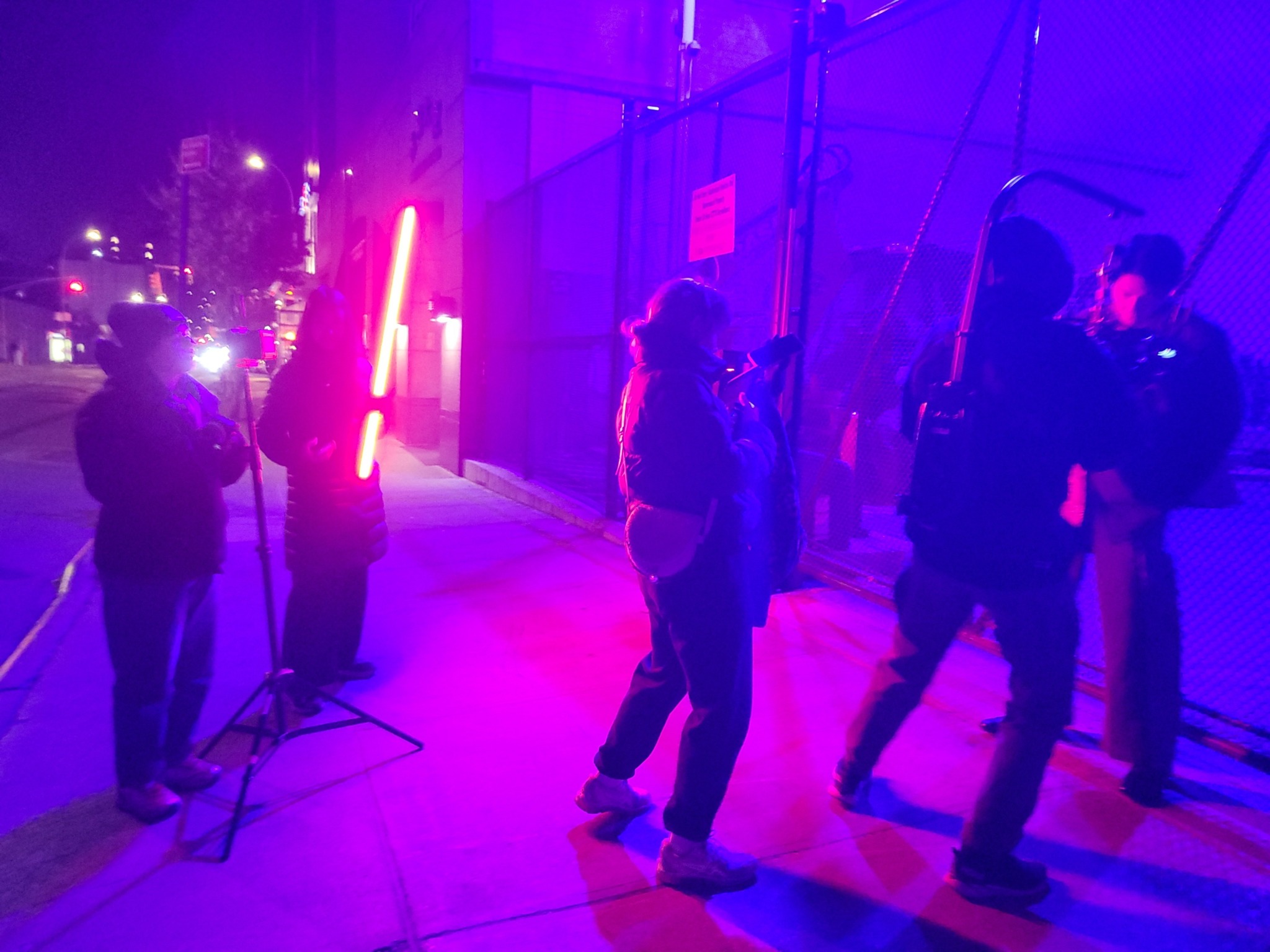
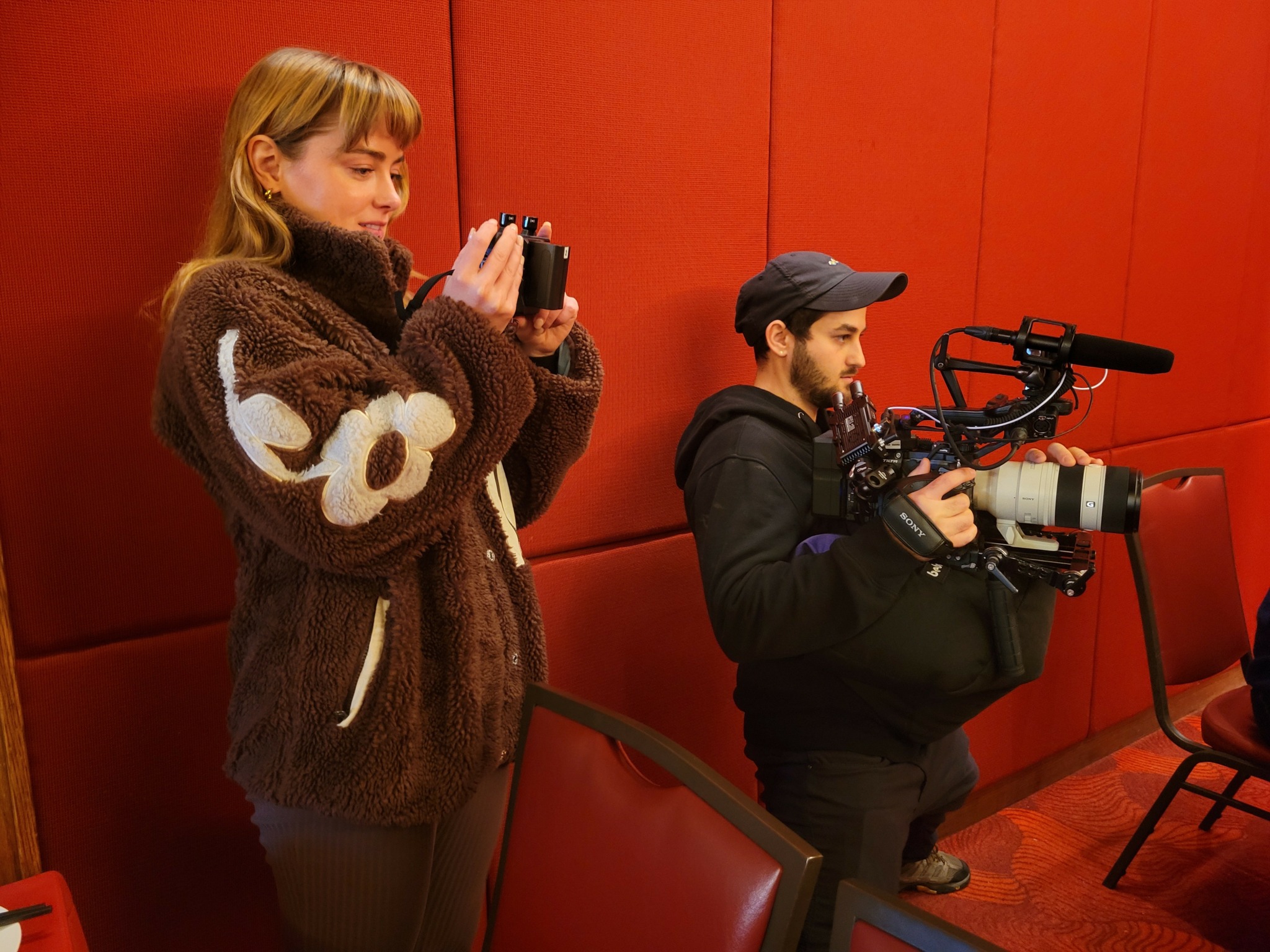
What’s the most rewarding aspect of being a creative in your experience?
For me, the most rewarding aspect of being a creative is when something I’ve made truly resonates with someone. Art has this incredible ability to connect people across experiences, backgrounds, and emotions, and I think that kind of connection is more important now than ever.
We live in an increasingly polarized world, where empathy and understanding often feel like they’re slipping away. But storytelling—especially through theater and film—has the power to bridge those gaps. It allows us to step into someone else’s shoes, to feel something beyond our own immediate reality. That’s why I’m so passionate about making films that provoke a real response, that challenge, inspire, or shine a light on underrepresented voices.
If a film I create makes even one person feel understood, or makes them think about the world a little differently, then I’ve done my job. That’s what keeps me going.
Contact Info:
- Website: charliegillette.com and mpshofficial.com
- Instagram: @charkable and @mpshofficial
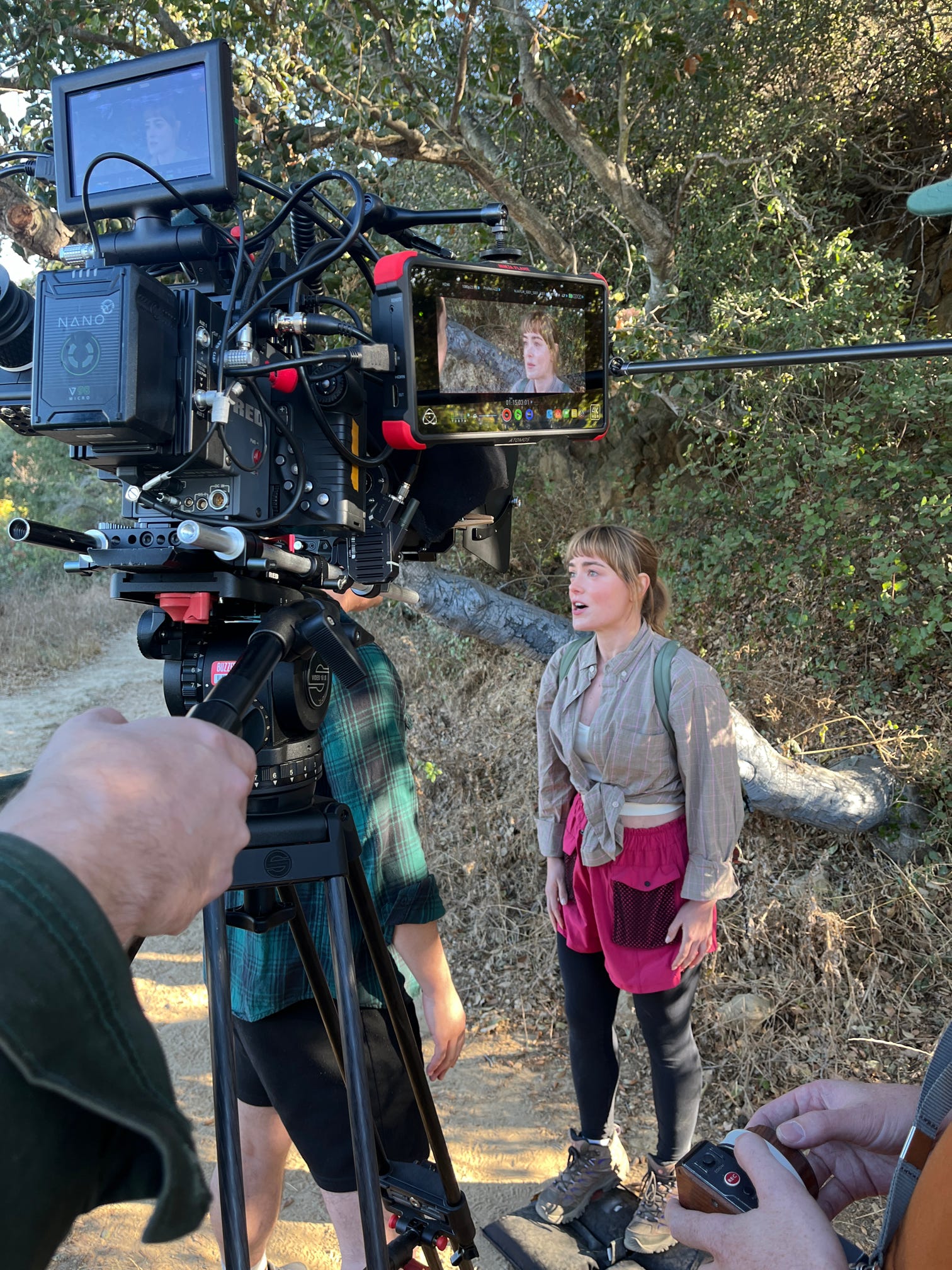
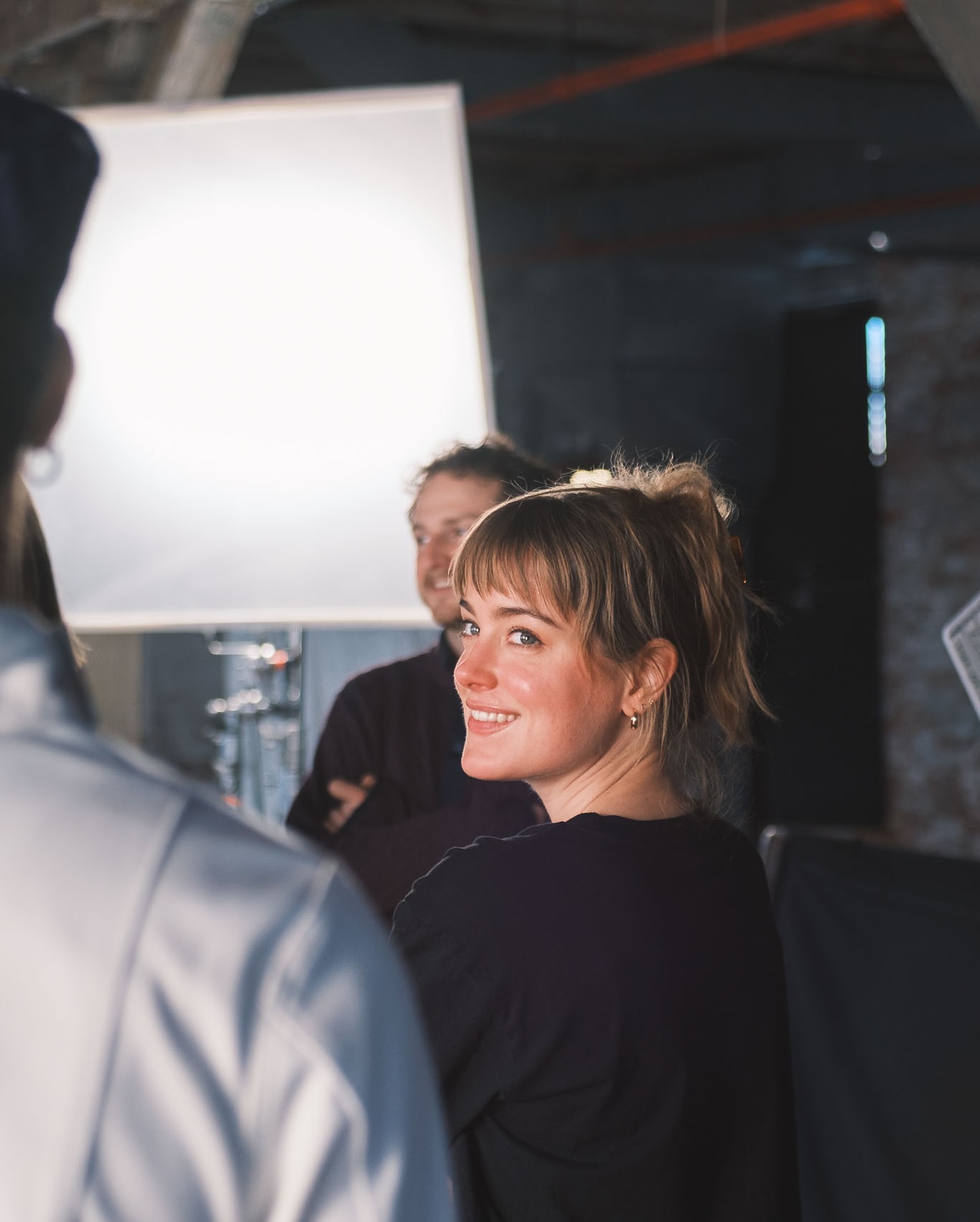
Image Credits
Julian Velez, Brandon J Ramones, Daniel Merino Villavicencio


